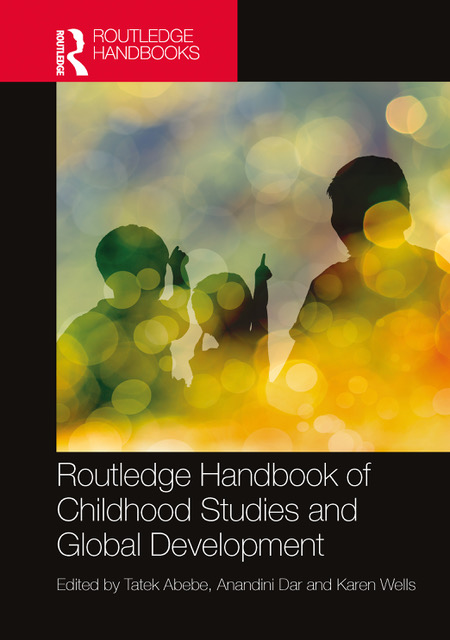Routledge Handbook of Childhood Studies and Global Development.
This Routledge Handbook of Childhood Studies and Global Development explores how global development agendas and economic development influence children’s lives. It demonstrates that children are not only the frequent targets or objects of development but that they also shape and influence processes of development and social change in diverse and meaningful ways.
The handbook makes the case for the importance of placing children at the heart of development debates, examining the complex social, historical, cultural, economic, epidemiological, ecological, geopolitical, and institutional processes transforming what it means to be young in the world today. Through reports on field research as well as a critical engagement with theories in development studies and childhood studies, contributions unravel the structural connections of global development processes as they relate to children’s life worlds. They tease out and tease apart how global developmental processes influence children’s lives, how children inform and shape development, why it is important to keep children at the centre of debates linked to development and socio-cultural change, and ways of engaging children in development research, policies and practices.
Organised in seven sections and 45 chapters showcasing research from both established scholars and early career researchers, and with particular prominence given to the work of authors from the global south, this handbook will be an essential reference for policymakers, practitioners, and for researchers and students across childhood studies, education, geography, sociology, and international development.
Link for purchasing the book is also found here: Routledge Handbook of Childhood Studies and Global Development – 1st E

